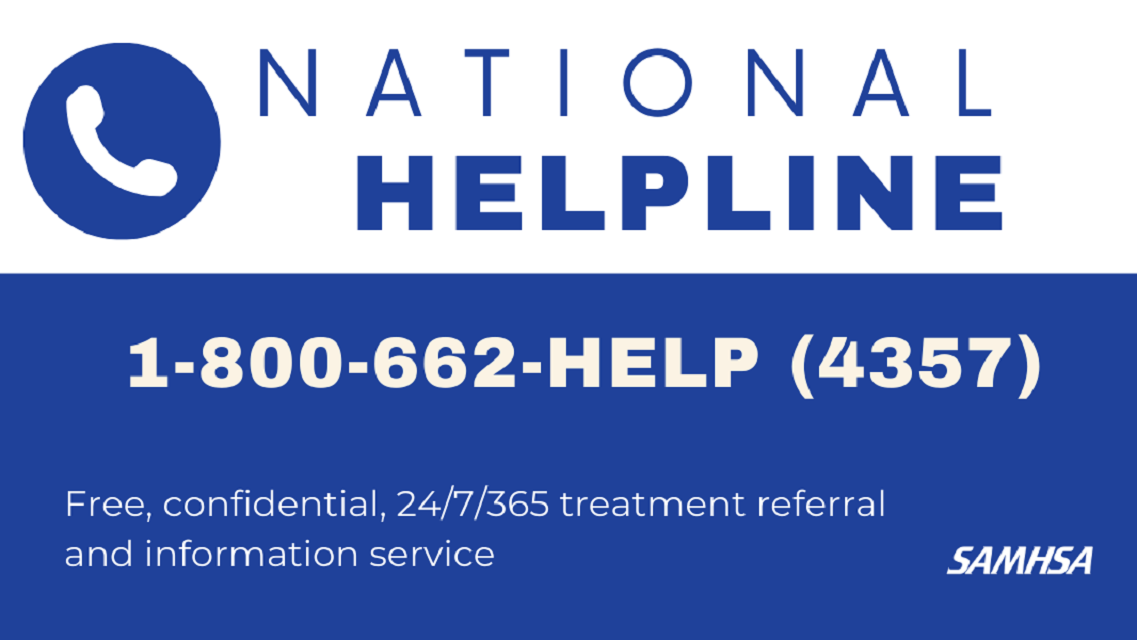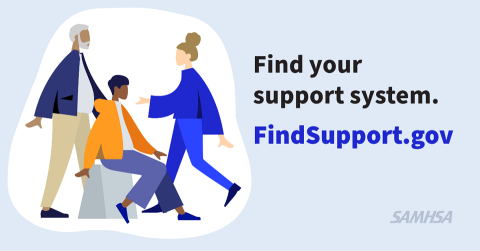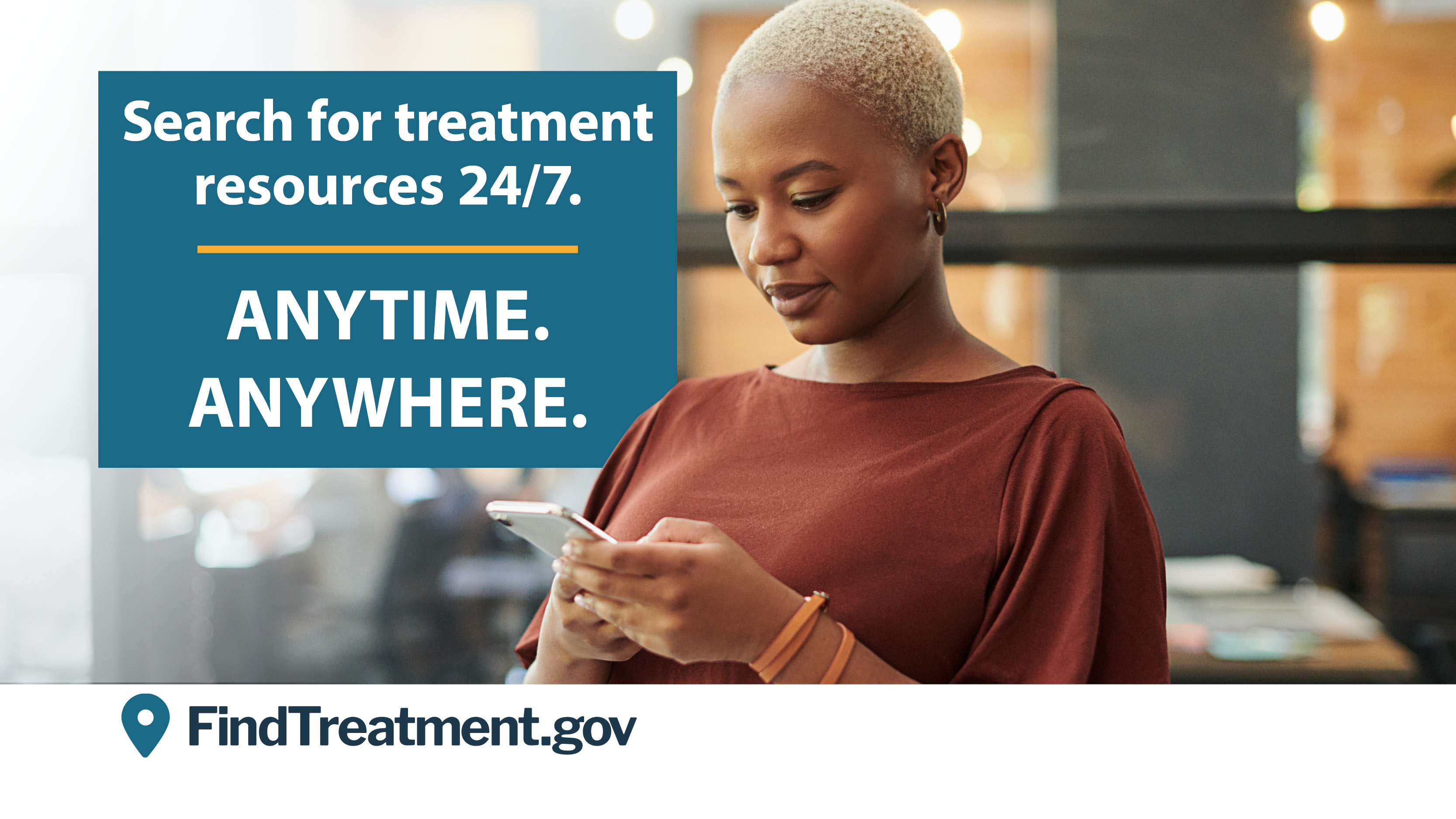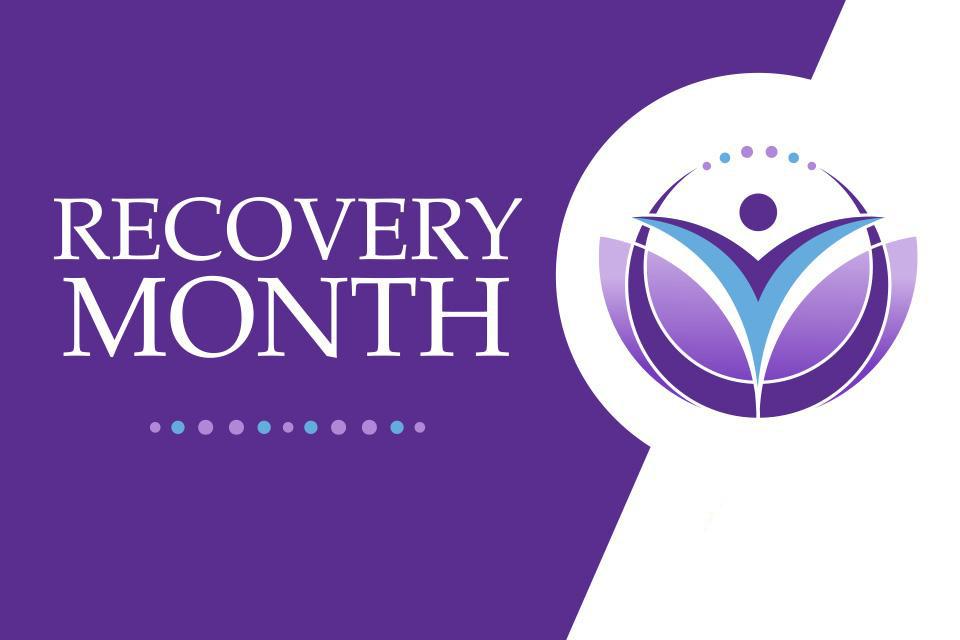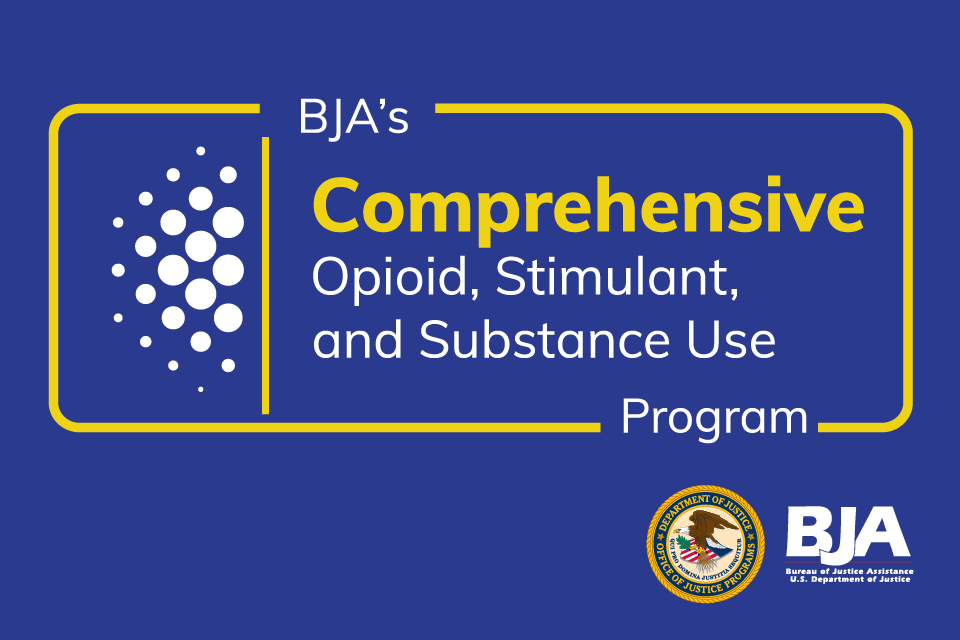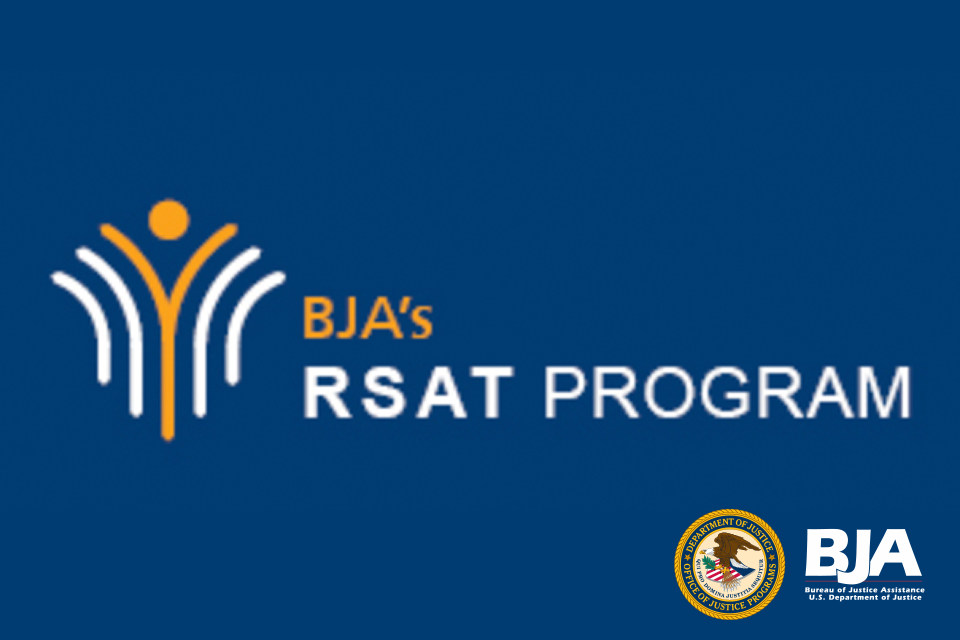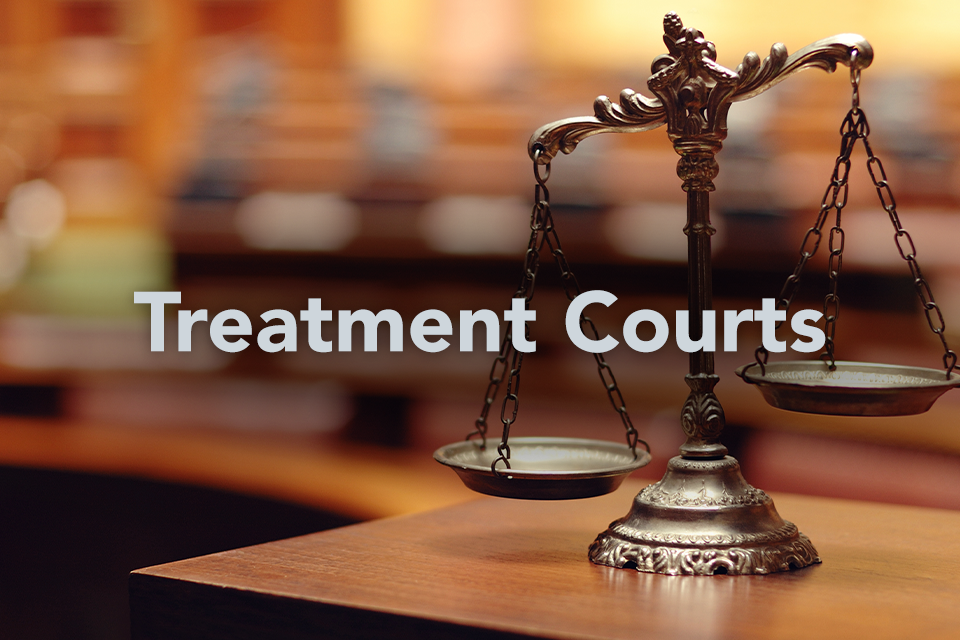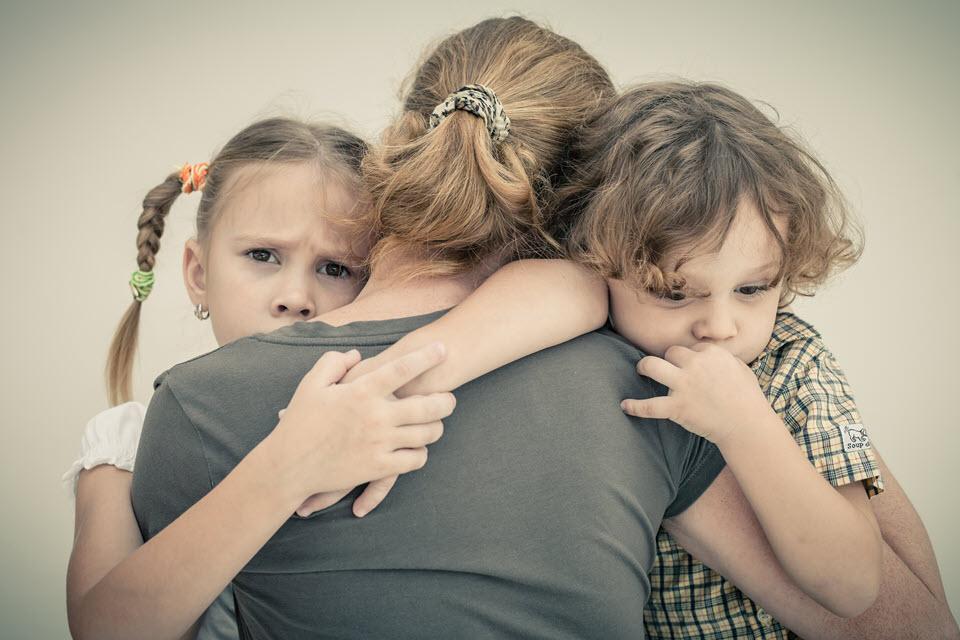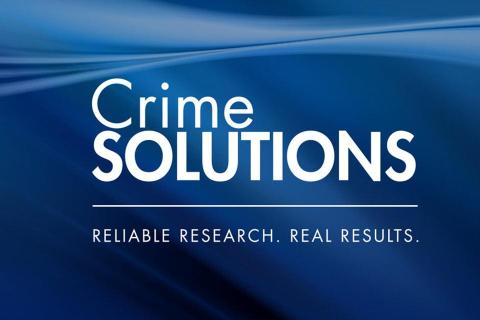Our nation is facing a substance misuse and overdose crisis. According to recent data from the Substance Abuse and Mental Health Services Administration, 46.3 million people (16.5% of the population) met criteria for having a substance use disorder, with the highest percentage amount young adults aged 18-25. The prevalence of substance use disorder, including opioid use disorder, is even greater when we look at data for individuals involved with the justice system. For example, according to the Bureau of Justice Statistics, more than half (58%) of state prisoners and two-thirds (63%) of sentenced jail inmates met criteria for substance use disorder. Additionally, 60 percent of youth in juvenile justice facilities met criteria for substance use disorder. Most individuals, in the community and within correctional facilities, do not receive the treatment that they need.
As the largest grantmaking component within the Department of Justice, the Office of Justice Programs (OJP) serves as a critical source of funding, training and technical assistance, and research to accelerate reform in our nation’s justice system. OJP supports prevention, harm reduction, treatment, and recovery services in communities and at all points across the justice system to increase education and awareness about substance use disorders and access to services that will address individuals’ needs to work toward recovery and a successful life in the community.
Find Help
Need help now?
Use the following hotlines and resources to get and find help. Call 911 or go to an emergency department if you are having an emergency or facing a life-threatening event.
| The Substance Abuse and Mental Health Services Administration’s (SAMHSA) National Helpline is a free, confidential, 24/7, 365-day-a-year treatment referral information service (in English and Spanish) for individuals and families needing support for mental health and/or substance use disorders. Call 1-800-662-HELP (4357) or TTY: 1-800-487-4889. For more information on substance use and mental health concerns, types and locations of treatment, and other resources, visit findtreatment.gov |
|
| FindSupport.gov This website addresses common questions about searching for support for mental health and substance use needs. The site provides helpful hints on what questions to ask, how to search for a healthcare professional or other support services, how to set up an appointment, and information on how to find services based on insurance coverage. |
|
| FindTreatment.gov is a product of SAMHSA’s Center for Behavioral Health Statistics and Quality (CBHSQ). It is the most comprehensive resource for persons seeking treatment for mental and substance use disorders in the United States and its territories. FindTreatment.gov provides the ability to search for substance use and mental health facilities, health care centers, buprenorphine practitioners, and opioid treatment providers. |
Popular Topics
Featured Resources
Engaged Communities Inspire Hope for Recovery
September is National Recovery Month. Read how OJP is supporting substance use recovery in America’s communities.
Comprehensive Opioid, Stimulant, and Substance Use Program (COSSUP) Resources
America’s substance misuse crisis is a public safety and public health emergency threatening the well-being of individuals who misuse drugs and their families, communities, and, ultimately, the nation. It impacts first responders, the criminal justice system, child welfare and foster care, behavioral health systems, and victim service providers. Supporting the field in addressing this epidemic is one of the U.S. Department of Justice’s top priorities, and at the center of this response is the Bureau of Justice Assistance’s (BJA) COSSUP.
RSAT Program Interactive Geomap
The Residential Substance Abuse Treatment for State Prisoners (RSAT) Program encourages the establishment and maintenance of drug-free prisons and jails and the development and implementation of specialized residential substance use treatment for individuals with co-occurring mental health and substance use disorders. The program also encourages the inclusion of medication-assisted treatment as part of any substance use treatment protocol.
Treatment Courts
Treatment court programs are specialized court docket programs that allow individuals to enter long-term drug treatment and agree to court supervision rather than receive a jail sentence. Today, there are more than 4,000 drug treatment courts nationwide. Adult treatment courts are the most prevalent treatment court, making up about half of all treatment courts in the United States.
Supporting Youth and Families Impacted by Opioid Use
The Office of Juvenile Justice and Delinquency Prevention's (OJJDP's) treatment courts serve youth and families with substance use challenges, including opioid misuse or co-occurring mental health disorders. Through additional opioid-focused programs and specialized training and technical assistance, OJJDP is working to break the cycles of addiction and crime and help save lives.
Novel Psychoactive Substance (NPS) Discovery
NPS Discovery is an open-access drug early warning system that helps to inform real-time action on the ground by public health and safety stakeholders. Working in collaboration with forensic science, public health, emergency medicine, and criminal justice agencies, this program supports the rapid identification of emerging drugs, or Novel Psychoactive Substances (NPS), associated with intoxications and adverse events and the consolidation of that data into reports and resources to allow for the rapid dissemination of information to colleagues and affected communities.
Funding Opportunities
Explore OJP's funding opportunities to support law enforcement, court professionals, correctional facilities, behavioral health providers, community-based organizations, and other service providers in addressing the needs of individuals with mental health and co-occurring substance use disorder needs.
|
OJP Programs and Initiatives
Following are some of the OJP programs that support drug and substance use services:
- Protecting Futures: Building Capacity to Serve Children and Youth Impacted by America’s Drug Crisis
This grant initiative facilitated the establishment, expansion, or improvement of evidence-based programs addressing substance use treatment and recovery support needs for individuals during incarceration and reentry. By reducing recidivism, expanding treatment access, and promoting long-term recovery, it enhanced both public safety and health.
- Supporting Children, Youth, and Families Affected by the Drug Crisis: Recruiting and Developing Peer Recovery Coaches
Funding support for the recruitment, training, and deployment of paid peer recovery coaches. These coaches, with lived experience in recovery and relevant systems, assisted family members and caregivers in their recovery journey from substance misuse, aiming to support the well-being of youth affected by drug-related victimization. Additionally, technical assistance was provided to subawardees, while a peer recovery coach paraprofessional program was developed. This initiative aimed to break the cycles of abuse, neglect, and addiction within families, fostering positive outcomes for children, youth, and the entire family unit.
- Comprehensive Opioid, Stimulant, and Substance Use Program (COSSUP)
COSSUP provides grant funding and training, and technical assistance to states, units of local government, and Indian tribal governments to develop, implement, or expand comprehensive efforts to identify, respond to, treat, and support those impacted by opioids, stimulants and other drugs. COSSUP supports a wide range of topics including, but not limited to, prevention, harm reduction, deflection and diversion, treatment, and recovery supports, including peer support services in the community and across the justice system.
- Residential Substance Abuse Treatment for State Prisoners (RSAT) Program
RSAT is a formula grant and training and technical assistance program that enhances the capabilities of state, local, and tribal governments to provide residential substance use disorder treatment to adults and youth during detention or incarceration, initiate or continue evidence-based substance use treatment in jails, prepare individuals for reentry, and assist them and their communities throughout the reentry process by delivering community-based treatment and other recovery aftercare services.
- Improving Substance Use Disorder Treatment and Recovery Outcomes for Adults in Reentry
This grant program supports states, units of local government, tribal governments, and nonprofit organizations to establish, expand, or improve evidence-based, culturally relevant programs to address the substance use treatment and recovery support needs of people, including parents of minor children and pregnant/postpartum women, during incarceration and reentry in an effort to reduce recidivism, expand access to evidence-based treatment, promote long-term recovery, and, in the process, improve public safety and public health.
- Adult Treatment Court Program
The Adult Treatment Court Program supports state, local, and tribal efforts to plan, implement, and enhance the operations of adult treatment courts, including tribal healing to wellness courts. Adult treatment court programs are a tool for criminal court partners and the judiciary to facilitate coordinated approaches that address the needs of nonviolent individuals involved in the justice system who have substance use disorders and/or co-occurring mental health needs.
- Veteran Treatment Court Program
The Veterans Treatment Court Program supports state, local, and tribal efforts to plan and implement or enhance the operations of veterans treatment courts. VTCs effectively integrate evidence-based substance use disorder treatment, mandatory drug testing, incentives and sanctions, and recovery support services in judicially supervised court settings that have jurisdiction over veterans involved in the justice system who have substance use disorders, including a history of violence and post-traumatic stress disorder as a result of their military service.
- Juvenile Drug Treatment Courts
Juvenile Drug Treatments Courts (JDTCs) are specialized courts for youth with substance use or co-occurring disorders who come into contact with the juvenile justice systems.
- Family Treatment Court Program
Family Treatment Courts (FTC) serve children, parents and families involved in the child welfare system due to parental substance use as a contributing factor to child abuse or neglect. The purpose of a family treatment court is to protect child safety, ensure a permanent care-giving environment and promote children's well-being through family recovery.
- Opioid Affected Youth Initiative
This grant program supports efforts of states, communities, jurisdictions, nonprofit organizations, for-profit organizations, and institutions of higher education to implement programs and strategies that identify, respond to, treat, and support children, youth, and families impacted by the opioids, and other substances.
- Mentoring for Youth Affected by Opioid and Other Substance Misuse
This grant program supports the enhancement and expansion of mentoring services for children and youth impacted by opioids and other substance misuse. The program's goal is to improve outcomes (such as improved academic performance and reduced school dropout rates) for youth impacted by opioids and other substance misuse through mentoring.
- Drug Data Research Center to Combat the Overdose Crisis
This program provides funding to support institutions of higher learning to expand statewide drug data repositories into regional drug data research centers that promote the collection, analysis, and dissemination of information to help inform and address responses to the overdose crisis and impacts of opioids, stimulants, and other substances.
Research, Data and Evaluation
- National Institute of Justice (NIJ) Drugs and Crime Portfolio
- BJS Bulletin, Opioid Use Disorder Screening and Treatment in Local Jails, 2019
- BJS, Drug and Alcohol Use Reported by Youth in Juvenile Facilities, 2008-2018 – Statistical Tables
- Sentencing Decisions for Persons in Federal Prison for Drug Offenses, 2013–2018
Training & Technical Assistance
Visit the following sites to learn about training and technical assistance services from and supported by OJP program offices:
- COSSAP Peer to Peer Learning Opportunities
- Bureau of Justice Assistance: National Training and Technical Assistance Center
- National Treatment Court Resource Center
- Office of Juvenile Justice and Delinquency Prevention Training & Technical Assistance
- OJJDP’s National Mentoring Resource Center
- Residential Substance Abuse Treatment Training and Technical Assistance
Multimedia
Perspectives on Substance Withdrawal Management: Corrections Leaders
Hear from professionals in the corrections field on the importance of managing substance withdrawal in jails and how the Guidelines for Managing Substance Withdrawal in Jails can help.
Champions of Recovery Videos from BJA’s COSSUP
Watch videos of individuals with substance use disorders who were involved in the justice system talk about their journey of recovery, and also hear from justice professionals who champion efforts to support individuals on their journey.
Justice Today Podcast From NIJ
NIJ Communications Assistant Josh Mondoro explores novel psychoactive substances with NIJ scientist Frances Scott. She explains what NPSs are, current research in the field, and the practical impact of this research for law enforcement and policymakers.



